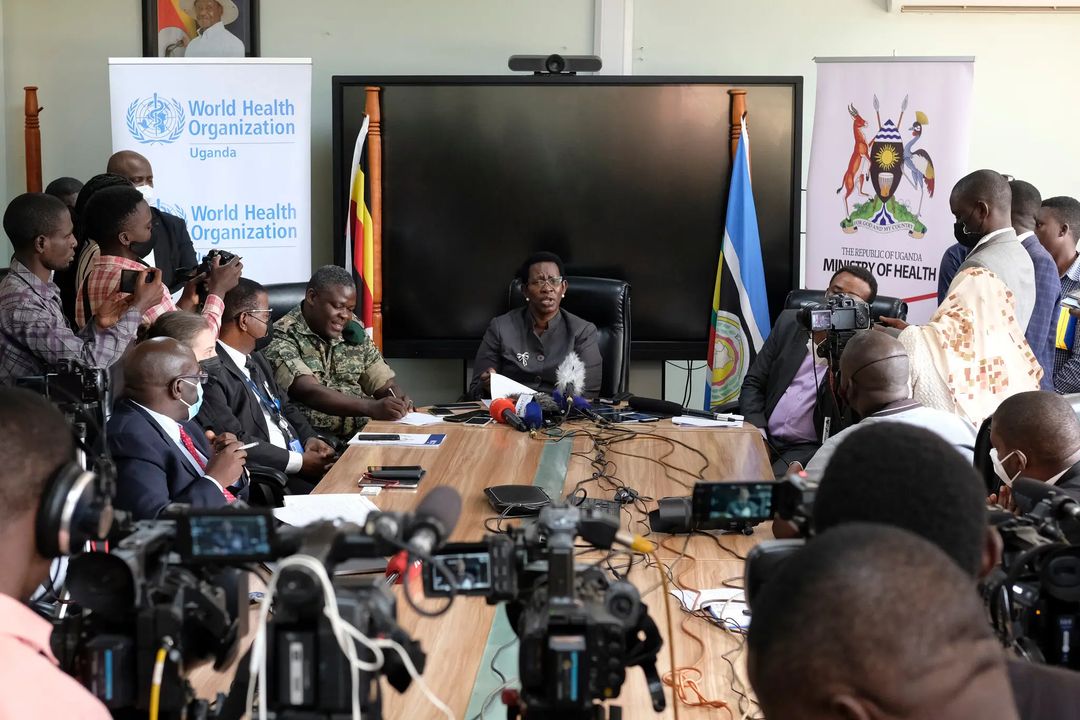Original by Thomas B. Edsall: The New York Times, Oct. 1, 2022
There has been a recent outbreak of Ebola in Uganda. In just a short time there were 35 confirmed cases and 7 deaths. This disease has been sub-named as the Sudan Virus Disease (SVD). Uganda has a history of multiple Ebola outbreaks, including SVD, from 2000. From the WHO, they say:
Uganda has reported four SVD outbreaks, in 2000, 2011 and 2012 (two outbreaks). Uganda also reported a Bundibugyo virus disease outbreak in 2007 and an Ebola virus disease outbreak in 2019.
Because of these multiple outbreaks in the past, citizens in Uganda are scared of the potential outcomes and have been taking measures to isolate. Parents have withdrawn their kids from school, and people are being careful going outside. The reason people are afraid is not only because of death, but these past outbreaks have caused great economic devastation. Even if you don't catch Ebola, if the country economically collapses it can severely worsen living conditions. By the time of this paper's publication, the outbreak has already also encompassed an effective radius of 75 miles. At the start, officials are being cautious when issuing closures. Currently, they don't see a reason to cause unnecessary fear.
This outbreak does not yet have a working vaccine. There are currently other ones that are being developed that should hopefully release to the public soon. The government is also starting public education campaigns so that people know what to do if they start having symptoms.

Diana Atwine, Uganda’s permanent secretary of the Ministry of Health, announcing an Ebola case at a Sept. 20 news conference in Kampala, the capital.
Source: Hajarah Nalwadda/Associated Press
Social Determinants of Health
The Ebola outbreak is a major concern for public health. Without the ability to keep people informed or have easy to access health officials, Ebola can spread rapidly. At the beginning there is a lot of fear because people don't want a repeat of what happened a decade ago. As mentioned, there are programs to increase awareness and to help protect people as much as possible. Sadly, without vaccines for the near future it will be hard to contain the disease.
There are quite a few risk factors that leave Uganda in a worse position than a richer country:
- Health care access
- Poverty
- Information
People don't have quick access to health care and may not feel inclined to go to the doctor if they are feeling sick. There are many reasons for this, and the main one being income. A lot of people can't afford to get sick. They can't miss work or pay for the necessary treatment. Being unable to go to the hospital may also cause a lack of information and people may spread the disease without realizing it. Income affects a lot of aspects of health, not just the downstream effects-like catching ebola.
U.S. Responds
In response, the U.S. with the CDC has enforced screening for people flying in from Uganda. They are also working to help increase relief force by sending out responders and establish mobile laboratories. This sort of intervention is very important, but it doesn't address the Social Determinants of Health. After this outbreak is contained, people still won't have access to health care or quick ways to receive information about imposing threats. People at risk will stay at risk.
Class Connections
In class, we read about maternal health. Even though Ebola and maternal health quite different, one connection I made is how important it is to understand cultural/ethnic markers behind health. Uganda's culture is significantly distinct from the U.S. Creating proper health interventions means to properly take those cultures into considerations. There isn't a "one size fits all" type of solution for big health issues such as this one. Health interventions require consideration of the individual people. We have to understand who we want to help before we can help them.
In the book Caste, it talks about the general superiority White American's have. I'd argue that in the case of Ebola in Uganda we can see how Americans still want to be seen as superior, but they don't want to put in too much effort. The U.S.'s intervention was mainly a point of precaution and sending in the bare minimum so that public perception stays high. One reason that this may happen that is mentioned in Caste is that when other people of "lower castes" start to improve their quality of life, the "higher castes" feel threatened. On paper everyone wants to help countries in worse positions, but the resources can quickly add up. Because of this, we just get interventions that help a bit and don't fix structural issues.
Further Reading
This doesn't have to do entirely with Social Determinants of Health, but I found this paper fascinating. In a paper in the National Library of Medicine the researchers discuss the cultural context and how the Alochi in Gulu, Uganda in the 2000-2001 outbreak responded to Ebola. In this culture burials are a big custom. Ebola can spread through dead bodies, so international healthcare workers were concerned about these burial rituals. Though, after the Alochi classified Ebola as gemo, the entire burial practiced changed. People were not to touch the dead bodies. I found this really interesting because their type of medicine is more spiritual and religious. Even with this, they were able to have specific types of interventions that helped reduce the spread of the disease, without evening knowing exactly what "scientifically" caused it. The rest of the study is fascinating.